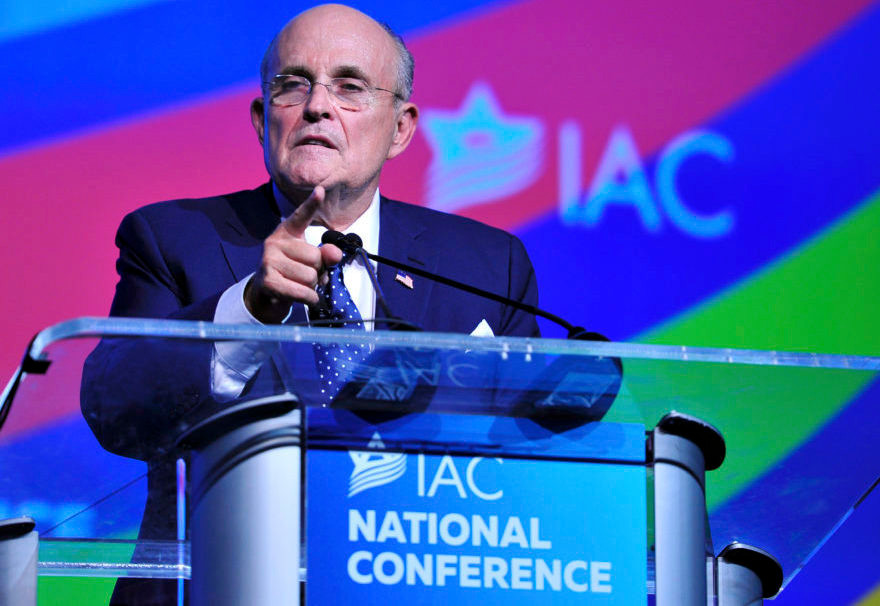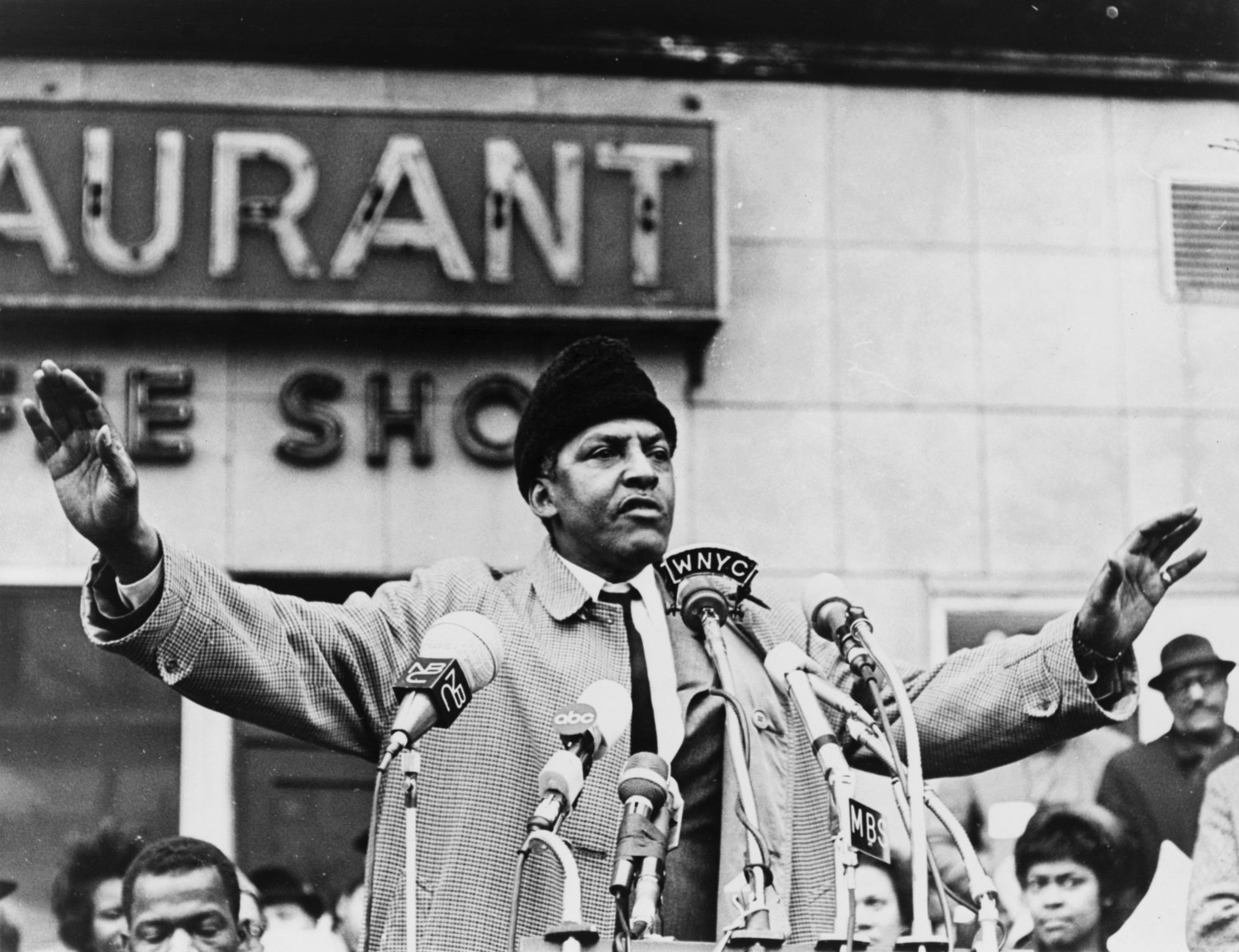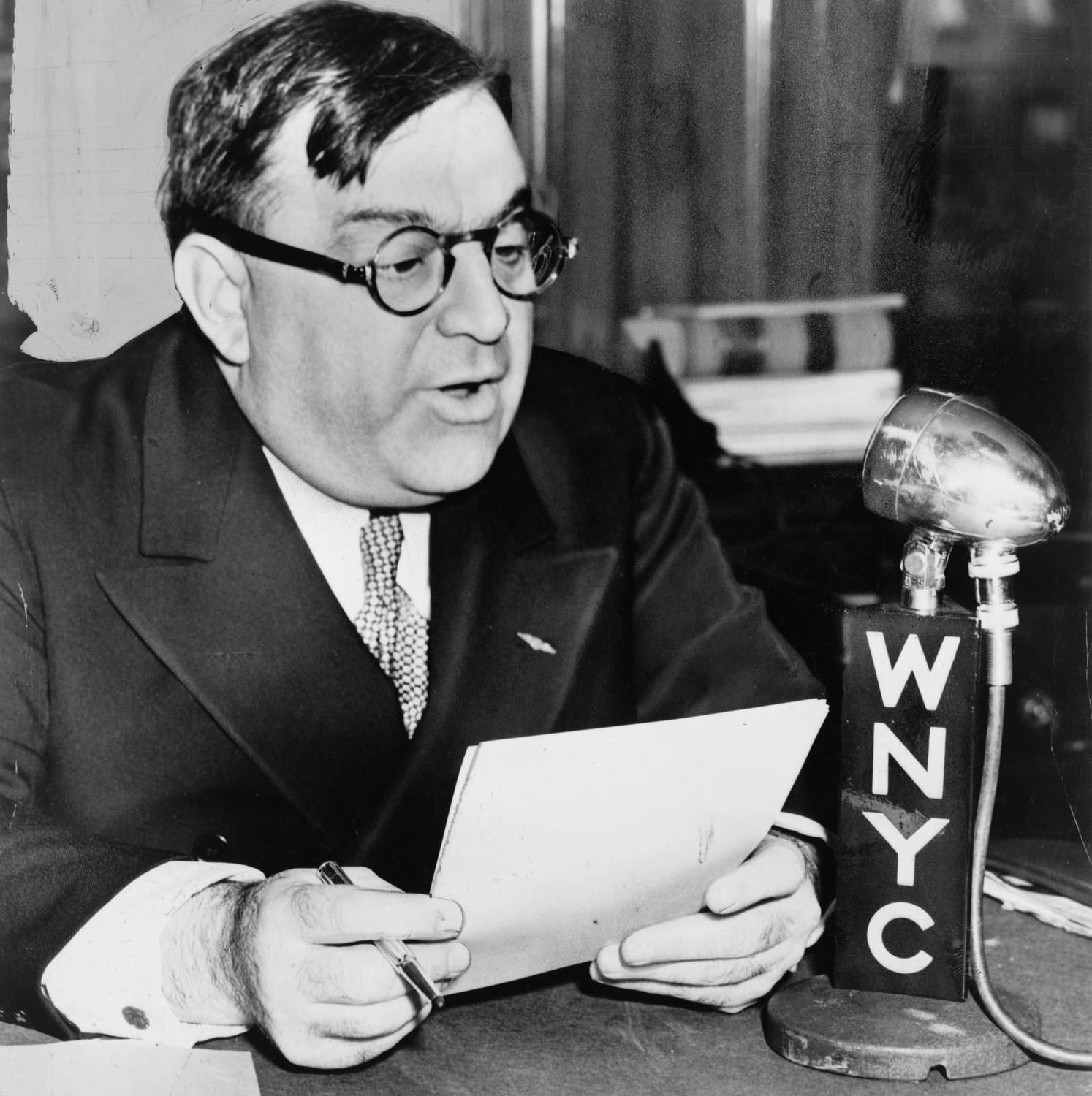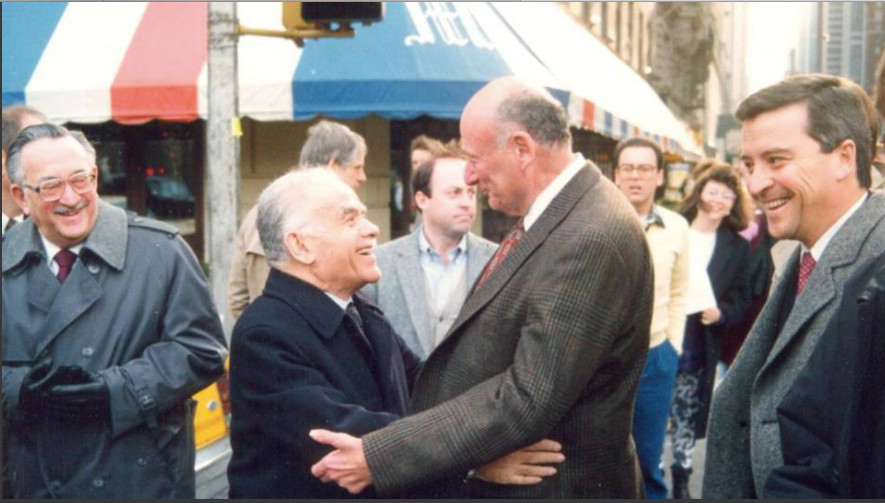Israel salutes America: 70 who counted in 70
On the occasion of the Jewish state’s 70th anniversary, the Israeli embassy in Washington, in partnership with the Jewish News Syndicate, celebrates 70 of the greatest American contributors to the U.S.-Israel relationship
Many of the people and organizations chosen for this acknowledgement will be readily recognized by readers of The Jewish Star, others less so, but their powerful stories build a collective history that reflects the broad base of American love and support for the Jewish state.
This week, The Jewish Star pubishes the fourth part of a series that will cover all of the “70 who counted.”
Link here to all 9 installments:
James Angleton (1917–1987) 28 of 70
James Jesus Angleton served in the CIA for more than 30 years, and for more than two decades as counter-intelligence chief.
Angleton’s connection with Israel began early in his career, when he led the CIA’s secret relationship with the Mossad and Shin Bet. This fledgling relationship proved fruitful for both nations. The first major exchange paved the way for decades of intelligence-sharing.
In 1956, Soviet leader Nikita Khrushchev gave a shocking speech to the 20th Soviet Communist Party Congress, a scathing criticism of Josef Stalin and his gruesome crimes. This top-secret text was highly guarded, shared only with leaders of the Eastern Bloc.
However, a Polish-Jewish journalist fortuitously obtained a copy from his girlfriend, a secretary for the Polish Communist Party. Having decided to move to Israel, he offered the document to an intelligence officer at the Israeli Embassy in Warsaw. As a result of Angleton’s fostered relationship, Israeli intelligence immediately delivered the coveted text to the CIA, greatly helping the United States at a critical time in the Cold War. This incident reinforced Angleton’s belief that a powerful and trusting relationship with Israel counterparts was critical for achieving America’s strategic goals.
Angleton continued to cultivate close ties with Israel over his career, a relationship that resulted in combating Soviet infiltration, countering terrorism and planning covert operations around the world. In 1978, George F. Keegan, the former chief of U.S. Air Force Intelligence, declared that the American military “owes more to the Israeli intelligence input than it does to any other single source of intelligence.”
The extraordinary alliance between America and Israel is tightly bound to intelligence-sharing, for which the foundations were laid by the tireless efforts of James Angleton. His death was marked in Jerusalem in 1987 by a secret tree-planting ceremony and memorial stone dedication. Attended by the highest-ranking members of the Israeli intelligence establishment, it was a testament to Angleton’s unique contribution to the Jewish state.
Lynn and Charles Schusterman 29 of 70
Maimonides noted the importance of both “welfare of the soul” and “welfare of the body.” Though spiritual matters are ultimately on a higher plane, the spirit cannot flourish if the body is neglected. Lynn and Charles Schusterman have strengthened both the body and soul of the Jewish people and the Jewish state.
Born in Kansas City, Lynn was raised in Oklahoma by her Jewish mother and stepfather. As a child, her stepfather, an investment manager, would take her to meet with widows in order to teach them to manage their finances. At a young age, she learned the importance of tikkun olam.
Lynn later moved to Tulsa and married Charles Schusterman, founder of Samson Resources, one of the largest independent oil and gas companies in the United States. She remembers their second date fondly: he was busy assisting the United Jewish Appeal, and she learned that they were both passionate about helping others. In 1987, the Schustermans set up the Charles and Lynn Schusterman Family Foundation, which has become one of the nation’s most important charities. The foundation supports efforts to improve public education in the United States, enhance the quality of life in the Schustermans’ hometown of Tulsa, and strengthen the Jewish community and Israel.
After Charles Schusterman passed away in 2000, Lynn took charge of the foundation and became a trailblazer in the world of Jewish philanthropy and a role model to women who hope to play a greater role in it.
Among the groups she has funded are the Israel on Campus Coalition, an organization dedicated to ensuring fair representation of Israel at universities; the Israel Institute, which is building the field of Israel studies in the U.S. and around the world; the Succat Shalom Center for Children and Families, an emergency shelter in Jerusalem for those in need; and the Schusterman Center for Jewish Studies at Brandeis University. She is also a founding member of Birthright Israel, which brings young Jews to Israel to deepen their connection with the Jewish state.
Schusterman’s commitment to Israel reaches beyond monetary contribution. In 2006, after Israel was barraged by Hezbollah rockets, her foundation sent emergency aid as well as 600 young volunteers from 17 countries to refurbish communities in the north of Israel.
Through their far-sighted generosity, the Schustermans have strengthened Jewish body and soul alike.
Bayard Rustin (1912–1987) 30 of 70
One of the most important leaders of the civil-rights movement, Bayard Rustin was a consistent advocate for Israel and a determined opponent of anti-Semitism.
Born in West Chester, Pa., Rustin moved to Harlem in his early 20s. In 1941, he helped organize the first “March on Washington.” The following year, he was arrested, beaten and jailed when he refused to sit at the back of a bus headed south. In 1947, he led a Freedom Ride. Arrested once more, he served time on a chain gang.
In 1953, Rustin helped found the Southern Christian Leadership Conference. He assisted Martin Luther King Jr. in his rise and taught him about Mahatma Gandhi’s ideas of nonviolent resistance. As one of the two main organizers of the “March on Washington for Jobs and Freedom” in 1963, Rustin stood alongside King as he delivered his “I Have a Dream” speech.
“An unflagging supporter of Zionism,” in the words of historian Randall Kennedy, Rustin saw his support for Israel as an extension of his commitment to civil rights. As Rustin put it, “since Israel is a democratic state surrounded by essentially undemocratic states which have sworn her destruction, those interested in democracy everywhere must support Israel’s existence.”
He was particularly antagonistic to the anti-Semitism displayed by some black nationalists in 1968 during New York’s teacher strike. Rustin was vociferous in criticizing those black leaders who showed sympathy for the PLO, a group he described as “committed to racism, terrorism and authoritarianism.” A longtime contributor to Commentary magazine, Rustin observed that autocratic Middle Eastern regimes promoted Israel hatred so that they would not have to “liberate their people from poverty.”
In 1970, Rustin called for the United States to sell fighter jets to Israel. Earlier, in 1966, he had served as the chair of the Ad Hoc Commission on the Rights of Soviet Jews. This was a passionate cause for him during the last two decades of his life, when he worked for Soviet Jewry alongside Sens. Daniel Patrick Moynihan and Henry M. “Scoop” Jackson.
This fight would play a pivotal role in bringing one million Russian-Jewish refugees to Israel.
Abba Hillel Silver (1893–1963) 31 of 70
Most of the great Zionists were men of action. But Abba Hillel Silver, a crucial figure in the history of Zionism, was also an outstanding scholar.
Born in Neustadt, Lithuania to a line of Orthodox rabbis, Silver was brought to the United States in 1902 and grew up on New York’s Lower East Side. There, at age 11, he co-founded a Hebrew-speaking Zionist organization, the Herzl-Zion club.
Deeply interested in Jewish theology and history, Silver enrolled at Hebrew Union College in Cincinnati, graduating in 1915 as its valedictorian. By 1917, when he was just 24, Silver had become head of Cleveland’s influential Congregation Tifereth Israel, where he remained throughout his life. Within 10 years, Tifereth Israel was the largest synagogue congregation in the United States.
Silver was a leading figure the Reform movement, which in the first half of the 20th century had an uncertain attitude towards Zionism. Silver himself had flirted with a “cultural” Zionism that excluded political sovereignty. But during World War II, he saw the need for an independent Jewish state and began to rally his fellow American Jews to the cause.
As historian Allan Arkush recounts, Silver’s electric speech in August 1943 at the Waldorf-Astoria Hotel in New York helped unite wavering American Jewish leaders behind the idea of a Jewish state. “Are we forever to live a homeless people on the world’s crumbs of sympathy?” he asked. “Should not all this be compensated for finally and at long last with the reestablishment of a free Jewish Commonwealth?”
After the war, Silver served as president of the American Zionist Organization and the Central Conference of Rabbis, continuing to push aggressively for a Jewish state. He put added pressure on President Truman to follow a pro-Israel course by persuading the Republican Party to add a pledge of support for Israel to its 1948 platform.
In the decade after the establishment of Israel, Silver’s continuing advocacy for Israel set a precedent for principled, forthright American-Jewish engagement in support of the Jewish state.
Zev Wolfson (1928–2012) 32 of 70
Zev Wolfson immigrated to New York City at the age of 17 after being deported by the Soviets from Lithuania to Siberia. Despite his impoverished youth, he quickly became an American success story, excelling in real estate, business, politics and more, and amassing tremendous wealth.
Yet despite his wealth and influence, Wolfson remained humble. When the chairman of Merrill Lynch asked how he gained his fortune, he responded: “G-d gave it to me.” His humility, piety and generosity were evident in all his actions.
Considering himself obligated to secure the growth of the Jewish people both physically and spiritually, Wolfson created and donated to hundreds of education and outreach programs. Exemplifying Maimonides’s praise for anonymous charity, Wolfson took no credit for his donations, making a complete account of his giving difficult to compile. But his support was extensive, much of it directed to schools and educational programs. In his last decades, he gave particularly generously to causes that highlighted Judaism and made its teachings more widely accessible.
Wolfson brought about change without fanfare. The columnist Jonathan Rosenblum recounts that when a group of young professionals asked Wolfson how they could become more active in Jewish communal work, he responded: “You’re not interested in becoming involved. If you were interested, you would just do it and not talk about it.”
When it came to Israel, he followed his own advice. Shortly before the first Persian Gulf War, Wolfson’s met with Sen. Daniel Inouye of Hawaii and asked if there was anything in the American arsenal that could protect Israel from Iraqi Scuds. Inouye told him about the Patriot missile batteries, and said that Israel had not asked for them. Wolfson immediately relayed this to Israeli leaders. The next day, a New York Times headline read: “US to Supply Patriots to Israel.”
Despite his riches, and long into his old age, Wolfson always flew to Israel in economy class, a humble and wise servant of the Jewish people.
The Mayors: Fiorello La Guardia (1882–1947), Ed Koch (1924–2013), Rudy Giuliani 33 of 70
The Jewish people had no better friend than New York Mayor Fiorello La Guardia. The “little flower,” as La Guardia was called, spoke Yiddish and was a progressive champion of the rights of Jews, particularly immigrant garment workers on the Lower East Side. But his finest hour would come in the early 1930s, when Hitler was rising to power. At a time when so many were silent, La Guardia raised his voice against the evils of Nazi Germany.
While La Guardia died before the establishment of the State of Israel, his brand of fearless leadership continued under two of his successors, Ed Koch and Rudy Giuliani.
Mayor from 1977 to 1989, Koch was a proud Jew and lifelong lover and supporter of Israel. Known for a gregarious personality, he was proud to count many Israelis, such as longtime Jerusalem Mayor Teddy Kollek, as dear friends.
During his tenure as mayor, Koch made clear that New York stood behind Israel in its efforts to achieve a lasting peace. As a loyal Democrat, he led efforts to bolster the long tradition of pro-Israel support within the Democratic Party and never put loyalty to party above speaking the truth. He crossed party lines in 1993 to support fellow Israel defender, Republican candidate Rudy Giuliani.
Throughout his career, Giuliani, 73, has been a strong, consistent and courageous advocate for Israel. In the 1990s and 2000s, he consistently called on Palestinians to end violence and return to negotiations. In more recent years, he has been one of the most articulate voices warning of the dangers of a nuclear Iran to America, Israel and the entire world.
From La Guardia to Koch to Giuliani, mayors of New York have built a remarkable legacy of support for the Jewish people and the Jewish state.
Eugene V. Rostow (1913–2002) 34 of 70
A great legal mind can be used in many ways. Eugene Rostow used his to aid the cause of American democracy — and Israel.
Born into an immigrant family in Brooklyn, Rostow soon revealed himself to be an intellectual prodigy, graduating with the highest of honors from Yale at age 19. By 1937, he was a member of its law-school faculty.
Back problem prevented Rostow from serving in combat during World War II, but he put his legal skills to work in the State Department, guiding the lend-lease program. He returned to Yale University Law School as Dean and turned it into one of the country’s best.
Rostow later served as Lyndon Johnson’s Undersecretary of Political Affairs and helped author U.N. Security Council Resolution 242, informing his frequent commentary on its many misinterpretations. He noted that while the resolution said that the outcome of the Six-Day War should not be the basis for territorial acquisition, it was no way “ambiguous.” It insisted upon “termination of all claims or states of belligerency and respect for and acknowledgment of the sovereignty, territorial integrity and political independence of every state in the area and their right to live in peace within secure and recognized boundaries free from threats or acts of force.” Rostow observed that “speaker after speaker made it explicit that Israel was not to be forced back to the ‘fragile’ and ‘vulnerable’ Armistice Demarcation Lines.” In speeches and articles, Rostow pointedly affirmed that the original U.N. Mandate for Palestine explicitly permitted Jewish settlement in Judea and Samaria.
As an expert on the Geneva Convention, he also noted that claims that it applied to Jewish settlements were absurd since the convention prohibits the “mass transfer of people into and out of occupied territories for purposes of extermination, slave labor or colonization. … [But] the Jewish settlers in the West Bank are most emphatically volunteers. They have not been ‘deported’ or ‘transferred’ to the area by the Government of Israel.”
These would be among Rostow’s greatest battles in the public arena. Even when political tides turned, he never flinched from defending the truth of Israel’s legal rights.













